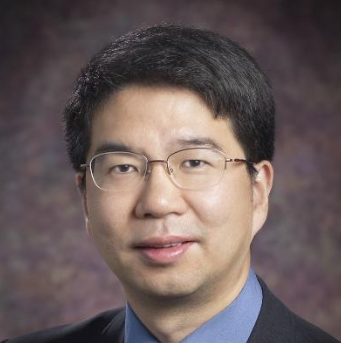嘉宾介绍
-

Jason Cong
Chancellors Professor of UCLA
Member of NAE
ACM/IEEE Fellow
-
报告题目:Computing Near the End of Moore's Law
演讲摘要:
As we get close to the end of Moore’s Law, one cannot rely on simple frequency or core scaling to improve the performance. We argued that future computing systems would be customizable with extensive use of accelerators. Such an accelerator-rich architecture presents a fundamental departure from the classical von Neumann architecture. In this talk, I shall first present an overview of our research on customizable computing, from single-chip, to server node, and to data centers, with extensive use of composable accelerators and field-programmable gate-arrays (FPGAs). I shall highlight our successes in several application domains, such as machine learning and computational genomics. Then, I present our ongoing work on enabling automation for customized computing. I shall highlight the algorithmic and implementation challenges and our solutions to many of these compilation and runtime optimization problems.
讲者简介:
Jason Cong received his B.S. degree in computer science from Peking University in 1985, his M.S. and Ph. D. degrees in computer science from the University of Illinois at Urbana-Champaign in 1987 and 1990, respectively. Currently, he is a Distinguished Chancellor’s Professor at the UCLA Computer Science Department, and the director of Center for Customizable Domain-Specific Computing (CDSC). He served as the department chair from 2005 to 2008. Dr. Cong’s research interests include electronic design automation, energy-efficient computing, customized computing for big-data applications, and highly scalable algorithms. He has over 400 publications in these areas, including 10 best paper awards, three 10-year most influential paper awards, and the 2011 ACM/IEEE A. Richard Newton Technical Impact Award in Electric Design Automation. He was elected to an IEEE Fellow in 2000 and ACM Fellow in 2008. He received the 2010 IEEE Circuits and System (CAS) Society Technical Achievement Award (TAA) and the 2016 IEEE Computer Society Technical Achievement Award. He was elected to the National Academy of Engineering in 2017.
Dr. Cong has graduated 35 PhD students. Nine of them are now fa
